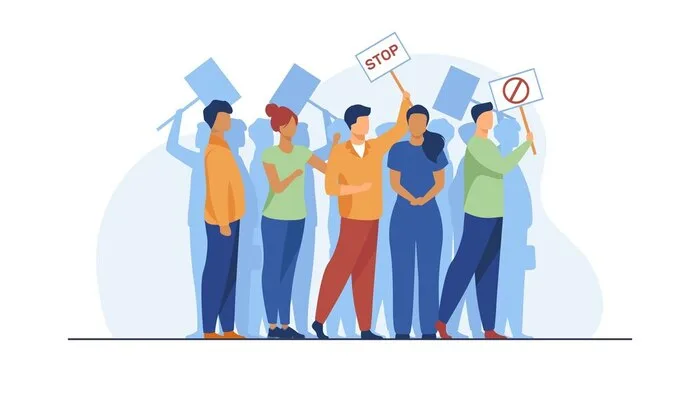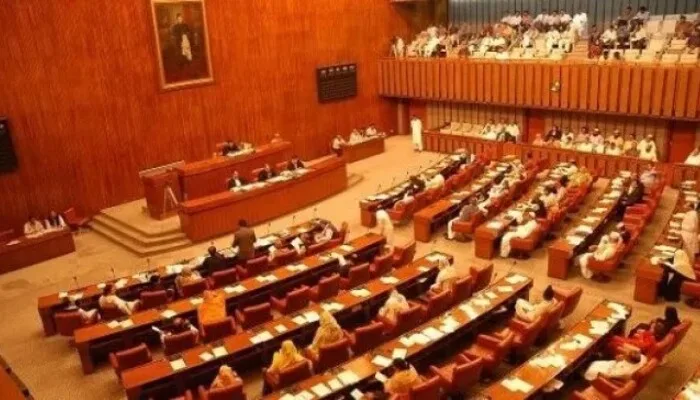
Every time a wave of injustice floods our screens—whether it’s Gaza, Kashmir, Syria, or any other oppressed land—there comes a predictable group of voices. They echo the same tired lines: “Boycott se kya hoga?”, “Bolne se kya hoga?”, “Taqrir karne se kya hoga?” These aren’t questions of curiosity. These are statements dressed as doubts, used to silence the passionate, to discourage action, and to preserve the status quo. But the truth is clear: these words don’t stop injustice—they fuel it.
Let’s unpack this mindset and confront it head-on, because silence is never neutral, and passivity is never harmless.
“Boycott Se Kya Hoga?” — The Lie of Powerlessness
The myth that individual boycotts don’t matter is a lie that benefits the oppressor. History has proven again and again that consumer resistance works. From the anti-apartheid boycotts in South Africa to the Montgomery Bus Boycott in the U.S., targeted economic action has brought empires to their knees. Every rupee, dollar, euro, or dirham we spend is a weapon. We either use it to uphold injustice or to fight against it.
Your money is never neutral. It speaks for your values. Choosing not to buy from companies that fund Israeli apartheid, profit from occupation, or support military aggression sends a powerful message. And when millions make that choice together, it becomes a roar the world cannot ignore.
Boycotts are not symbolic—they are strategic. When global brands lose revenue and suffer public backlash, they take notice. We’ve already seen Starbucks suffer losses and McDonald’s Israel face widespread boycotts. The evidence is there. Action speaks louder than doubt.
“Bolne Se Kya Hoga?” — The Firepower of a Voice
One of the greatest lies told to the oppressed is that their voice doesn’t matter. But it does. In fact, it matters so much that tyrants fear it. Dictators fear microphones more than missiles because a voice raised in truth can spark revolutions. Silence may feel safe, but it only protects those in power.
Movements like Black Lives Matter and the Arab Spring didn’t begin with tanks—they began with tweets, videos, and hashtags. Someone spoke. Someone shared. Someone refused to be quiet. And that one voice multiplied into millions.
Speaking out—whether on social media, in conversation, or through art—creates awareness. And awareness generates pressure. Pressure leads to accountability. Even if only ten people hear your voice today, it could be ten thousand tomorrow. Never underestimate your power to amplify truth. A raised voice may not stop today’s bomb, but it might prevent tomorrow’s.
“Taqrir Karne Se Kya Hoga?” — The Minbar Is Made for Moments Like This
When religious scholars raise their voices for Palestine, for Kashmir, or for the Uyghurs, they are fulfilling a sacred duty. Islam is not just about rituals—it’s about standing against injustice. The Prophet Muhammad ﷺ used his sermons to call out oppression, tribalism, corruption, and inequality. He spoke truth to power without fear. That is the prophetic tradition, and it must continue.
When you mock or dismiss religious figures for speaking out, you are trying to silence one of the most influential voices in our community. The minbar is not a place to remain neutral in the face of injustice. It is a platform for justice. And those who speak from it should be supported, not silenced.
Silence from scholars is dangerous. Their voices have the power to awaken hearts, shift public opinion, and inspire meaningful action. If they don’t speak, who will? Their silence would be complicity.
Read: Israeli Military Requests Additional $2.6 Billion for War Effort
These Phrases Are Not Harmless—They Are Weapons of Apathy
“Boycott se kya hoga.”
“Bolne se kya hoga.”
“Taqrir se kya hoga.”
These are not innocent musings. They are roadblocks placed in the path of justice. They are meant to drain energy, mock sincerity, and disarm movements. But history has taught us otherwise. Empires have fallen because people acted. Oppressors have trembled because people spoke. Nations have shifted because scholars preached.
Every act of resistance matters. Every refusal to remain silent is a blow against injustice. And when repeated with consistency, these acts become unstoppable.
The Proof is Clear—Resistance Works
The effects of resistance are already visible:
-
Starbucks’ profits dropped significantly during boycott campaigns.
-
McDonald’s in Israel faced backlash, protests, and financial hits.
-
Social media pressure forced brands to clarify or change their public positions.
-
Hashtags, posts, and videos have reached millions and inspired protests, petitions, and action.
This is not fiction—it’s fact. Your words, your choices, your faith—they all play a role in the larger movement. Don’t let anyone convince you otherwise.
Everyone Has a Role—What Will You Do?
You don’t need a million followers to make a difference. You need courage and conviction. If you have a voice, raise it. If you earn money, spend it ethically. If you have a platform, use it. If you have faith, pray with your hands and work with your actions. The Ummah is not a crowd—it’s a movement. And movements only move when we do.
“You may not be able to change the world, but don’t let the world change your conscience.” That’s the heart of this message. We resist because it’s right—not because it’s easy or guaranteed.
Final Thoughts: Replace “Kya Hoga” With “Yeh Zaroor Hoga”
We don’t act because results are instant. We act because we are accountable to a higher power. Allah commands us to stand firm for justice, even if it’s against ourselves. So when someone asks:
“Boycott se kya hoga?”
Say: “A lot—if we all do it.”
“Bolne se kya hoga?”
Say: “It’s already shaking the world.”
“Taqrir se kya hoga?”
Say: “That’s how Prophets changed nations.”
We were not created to sit silently while injustice reigns. We were made to stand, speak, and resist—with heart, with voice, with action.
Follow us on Google News, Instagram, YouTube, Facebook, Whats App, and TikTok for latest updates















